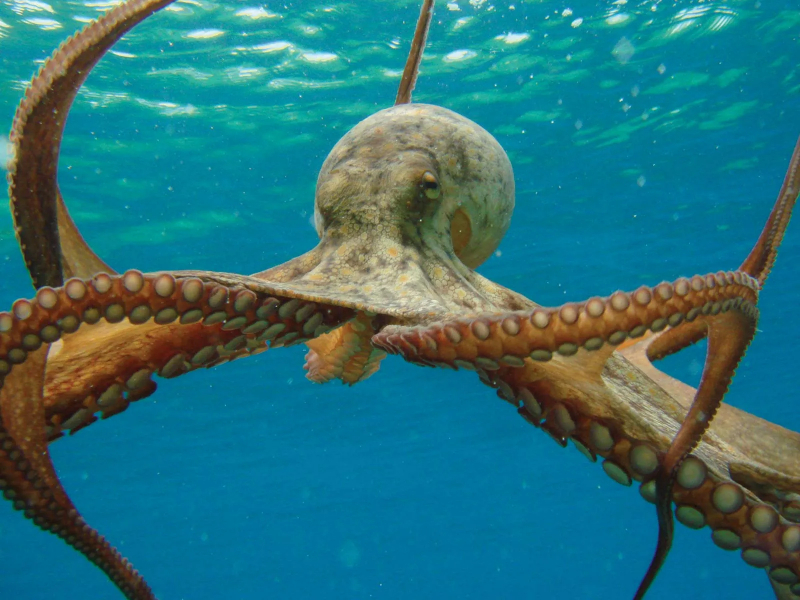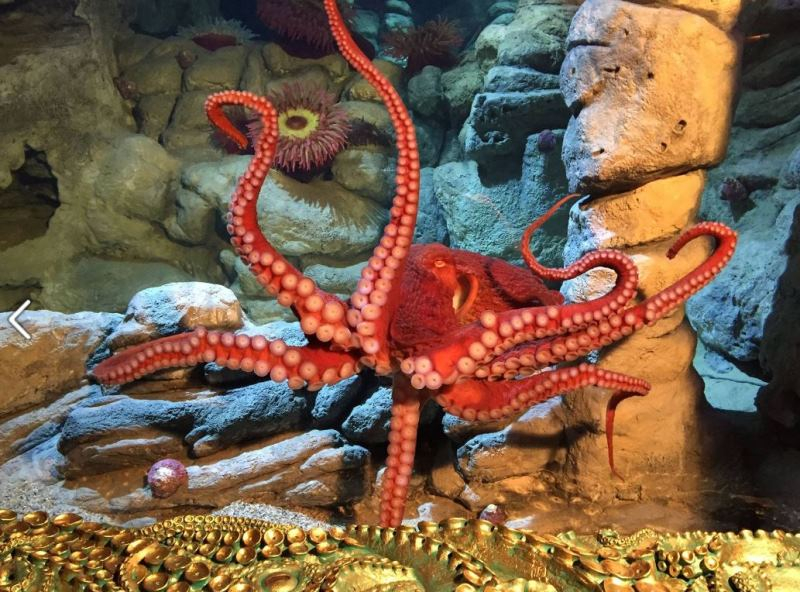Octopuses
Octopuses are eight-limbed, soft-bodied mollusks that are members of the Octopoda order. Their habitat spans a variety of aquatic environments, including ocean waters, the seafloor, and coral reefs. These are often young, swiftly growing, and immature species. When fully grown, they typically weigh between 14 and 16 kg, and they can have arms as long as 14 feet. They are dangerous creatures, although only the poison of the blue-ringed octopuses can kill people; they normally avoid humans, but occasional contacts have been documented.
Occupying dens, which are often cracks in rocky outcrops or other solid objects, octopuses conceal themselves. However, other species dig into sand or mud. Octopuses are not territorial, however they usually stay in their home zone. They may venture outside if they need to find food. Without having to go back the way they came, they may find their way to a den. These animals don't migrate.
Octopuses transport their prey to their den so they may securely consume it there. When the octopus catches more prey than it can consume, a midden of dead and uneaten food is frequently present around the den. Younger ones often eat copepods, sea stars, and crab larvae, whilst adults prefer tiny fish, snails, crabs, clams, and other octopuses.
Sea urchin consumption by octopuses is uncommon, but when alternative food sources aren't accessible, they'll eat everything they can.












